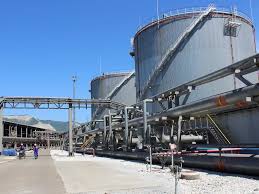Global oil prices fell sharply on Tuesday following news that Israel and Iran had agreed to a ceasefire after nearly two weeks of escalating conflict. The deal, which U.S. President Donald Trump claimed credit for, triggered a market reaction that saw Brent crude drop by as much as 6 per cent to $67.29 per barrel—down from nearly $80 in previous days.
Despite mutual accusations of violating the ceasefire within hours of its announcement, the truce brought temporary relief to global markets. Investors had feared a broader conflict that could disrupt oil supplies via the Strait of Hormuz, a vital channel for global energy shipments. Stock markets in the United States, United Kingdom, and Europe responded positively, with the S&P 500, Dow Jones, and Nasdaq all posting gains.
However, the ceasefire’s effect on Nigeria is a double-edged sword. While the drop in global oil prices is expected to reduce federal earnings from crude exports—an essential revenue source for the Nigerian government—it may lead to a decline in domestic petrol prices. For everyday Nigerians, this could mean lower transportation costs and reduced prices for food and essential goods, helping ease inflation pressures.
Lower fuel prices would also benefit small and medium enterprises, particularly in sectors like retail, logistics, and informal trade, by improving profit margins and enhancing operational efficiency.
Recently, petrol prices in Nigeria had risen following upward adjustments by Dangote Refinery and the Nigerian National Petroleum Company Limited (NNPC). These hikes were driven by a combination of global factors, including spiking crude oil prices caused by tensions in the Middle East. Dangote, which relies partly on imported crude, had passed rising feedstock costs on to consumers, while NNPC and other marketers followed suit to remain competitive in the deregulated fuel market.
Oil prices had soared to as high as $81 per barrel amid fears of a wider Middle East war, following missile exchanges between Iran and U.S. forces stationed in Qatar, and Israel’s surprise strike on Iranian nuclear facilities on June 13. The volatility stoked global concern over rising energy costs and their broader economic impact.
While the ceasefire has helped cool market tensions, its fragility remains a concern. Trump accused both Israel and Iran of violating the terms just hours after the announcement, and Israel alleged that Tehran had launched another missile strike. Nonetheless, Brent crude is now headed toward its lowest settlement since June 10, and West Texas Intermediate (WTI) is tracking its lowest since June 6.
Both oil benchmarks had surged to five-month highs after U.S. strikes on Iranian targets over the weekend but ended Monday more than 7 per cent down. The situation continues to evolve, with market stability closely tied to the durability of the ceasefire.









